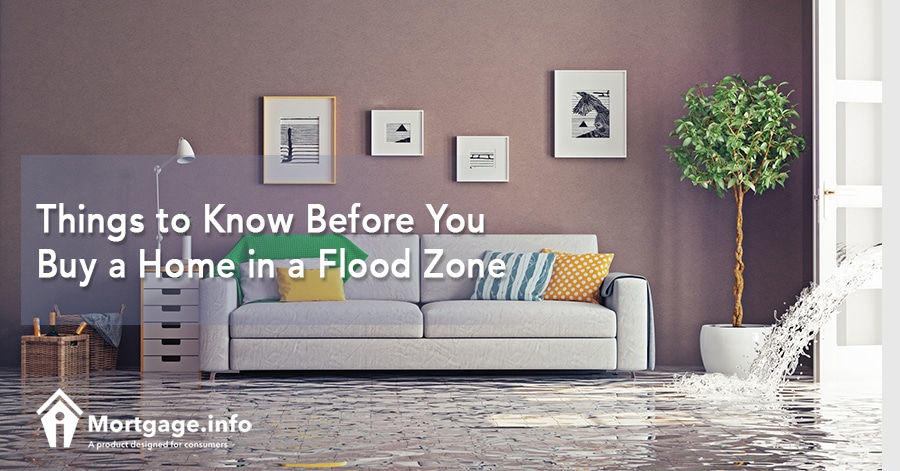Before you can close on a mortgage, your lender will need to know a few things about your home. The most important is the value. They cannot lend you money if the value of the home isn’t high enough. Second most important, however, is if the home is in a flood zone. If it is, you will be required to carry flood insurance, which differs from homeowner’s insurance.
Compare Offers from Several Mortgage Lenders.
If you find out your home is in a flood plain, it may not change your decision to buy the home, but there are some things you should consider.
Know the Flood Zone
The flood zone you are located in makes all the difference in the world. In fact, a majority of homes are in some type of zone coded for flooding. It’s the code that you need to know.
If you are in Zone X or Zone C, you are at very minimal risk. Most mortgage lenders won’t require flood insurance in these areas; that’s how minimal the risk is. The highest risk areas are Zone A and V. The risk of these areas flooding is much higher than Zone X or C. These are the areas you’ll need flood insurance.
Flood Insurance can be Expensive
Your flood insurance is a completely separate policy from your homeowner’s insurance and it can be costly. The actual costs depend on the actual flood zone the home is located in. Zones A and V are the riskiest and therefore the most expensive.
How much insurance you buy will determine its cost, though. Your mortgage lender will require insurance that covers the home’s structure. However, you may also want to cover the inside contents of your home, which raises the rate. Shopping around with different providers won’t help, though. There is a national standard for rates that every insurance company must follow.
Your Flood Zone Could Change
FEMA determines your flood zone and they continually redo their maps as new buildings, roads, and structures get built. If there is a flurry of building activity around your area, your flood zone may change. With less land to soak up the water, the risk of flooding gets even higher.
Click to See the Latest Mortgage Rates.
Stay on top of any new zoning in your area. Even if you aren’t in a zone coded for flooding, but think you might be after the new building activity, get in touch with your city council. You can’t secure flood insurance if you aren’t in a designated flood zone.
You Have to Pay a Year of Flood Insurance Upfront
When you buy a home in a flood zone, you must prove to the lender that you have flood insurance. This means paying for an entire year before the closing. The paid receipt is the only way the lender will provide a clear to close on your loan.
It’s the same case for homeowner’s insurance, but flood insurance is two to three times more than what your homeowner’s insurance will cost. You will also have to keep up with your premium payments. If you let your flood insurance lapse, your lender will force place flood insurance on you, which means they will buy a policy for you and charge you for it. As you can guess, it won’t be at the cheapest rates available in town.
So should you buy a home in a flood zone? It’s a personal decision. One thing is for certain, you need insurance. Your lender will require it, but you want it for your own financial protection. If a flood does occurwhile you still live in the home, you’ll have the financial protection you need to build the home back up and/or renovate it after the flood.

